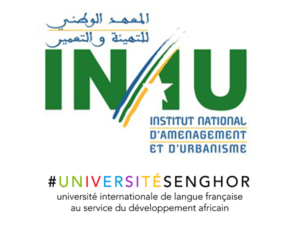
Master 2 “Transport and sustainable urban mobility”
Type of diploma
Master degree (60 ECTS)
Target audience
- Technicians in charge of transport and urban mobility projects
- Senior managers and decision-makers
Partners
- CODATU
- Institut National d’Aménagement et d’Urbanisme – National Institute of Urban Planning and Development
- Senghor University
Key figures
- 3 classes trained (2017-18, 2018-19, 2021-22),
- 39 auditors have followed this training
Periodicity
Promotion every 18 to 24 months
Teaching device and method
Face-to-face teaching (and distance learning for some international teachers) alternating between lectures by teachers and experts, exercises and case studies. Field trips may be planned.
Model
The course consists of 8 teaching units and an internship, spread over 16 months (average duration of teaching 330 hours). As an indication, the course of study can be organised as follows:
- UE 1Introduction to Sustainable Urban Mobility
- UE 2Urban and Regional Mobility Planning
- UE 3Governance, Financing and Defining Travel
- UE 4Project Management of Public Transport Networks
- UE 5Development and Operation of Public Transport Networks
- UE 6Mobility demand forecasting and fare and commercial policy
- UE 7Traffic engineering and flow management
- UE 8Final Project and Examinations
Expected skills
- Analyse, understand and respond to the demand for mobility in African cities;
- Develop, optimise and operate multimodal transport networks;
- Develop and implement urban mobility policies and urban travel plans in Moroccan cities;
- To ensure the project management and management of large infrastructure projects (mass transport system).
